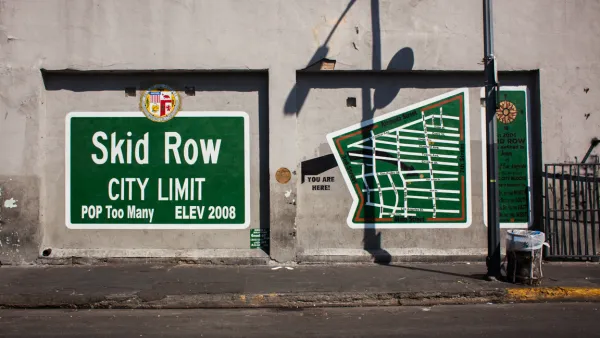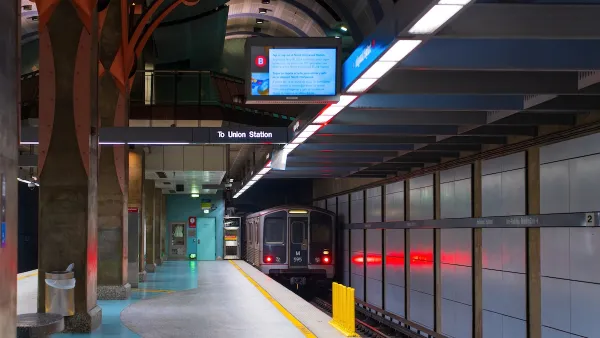As Midwesterners flocked to Southern California in the first decades of the last century, place names associated with the region's Spanish settlers were anglicized. A return to proper pronunciations reflects the area's changing demographics.
"Many of the names that dot the maps of Southern California originate with the Spanish settlers of the 17th and 18th centuries and the Native Americans before them," explains Marisa Gerber. "The English-speaking people who eventually developed the region loved the romantic feel of the Spanish place names but brought a decidedly Midwestern way of pronouncing them."
"Rancho Los Feliz became Los FEE-lus. La bahía de San Pedro, San PEE-dro. El Segundo, Elsie Gunndo."
"These days, though, Spanish pronunciations are making a comeback," she notes. "A younger generation — perhaps more sensitive to the region's history — favors truer Spanish pronunciations. L.A.'s growing Latino population helps propel the new pronunciations too: Univision Radio's "Piolin por La Mañana" often outpaces its English-language competitors, and a Latino runs City Hall."
"It's part of the re-Latinization of Los Angeles," said historian William Estrada. "Intersections of culture come about in cuisine and in spoken word — in the changing movement to the correct, authentic pronunciation."
FULL STORY: 'Los Feliz': How you say it tells about you and L.A.

Planetizen Federal Action Tracker
A weekly monitor of how Trump’s orders and actions are impacting planners and planning in America.

Chicago’s Ghost Rails
Just beneath the surface of the modern city lie the remnants of its expansive early 20th-century streetcar system.

San Antonio and Austin are Fusing Into one Massive Megaregion
The region spanning the two central Texas cities is growing fast, posing challenges for local infrastructure and water supplies.

Since Zion's Shuttles Went Electric “The Smog is Gone”
Visitors to Zion National Park can enjoy the canyon via the nation’s first fully electric park shuttle system.

Trump Distributing DOT Safety Funds at 1/10 Rate of Biden
Funds for Safe Streets and other transportation safety and equity programs are being held up by administrative reviews and conflicts with the Trump administration’s priorities.

German Cities Subsidize Taxis for Women Amid Wave of Violence
Free or low-cost taxi rides can help women navigate cities more safely, but critics say the programs don't address the root causes of violence against women.
Urban Design for Planners 1: Software Tools
This six-course series explores essential urban design concepts using open source software and equips planners with the tools they need to participate fully in the urban design process.
Planning for Universal Design
Learn the tools for implementing Universal Design in planning regulations.
planning NEXT
Appalachian Highlands Housing Partners
Mpact (founded as Rail~Volution)
City of Camden Redevelopment Agency
City of Astoria
City of Portland
City of Laramie





























